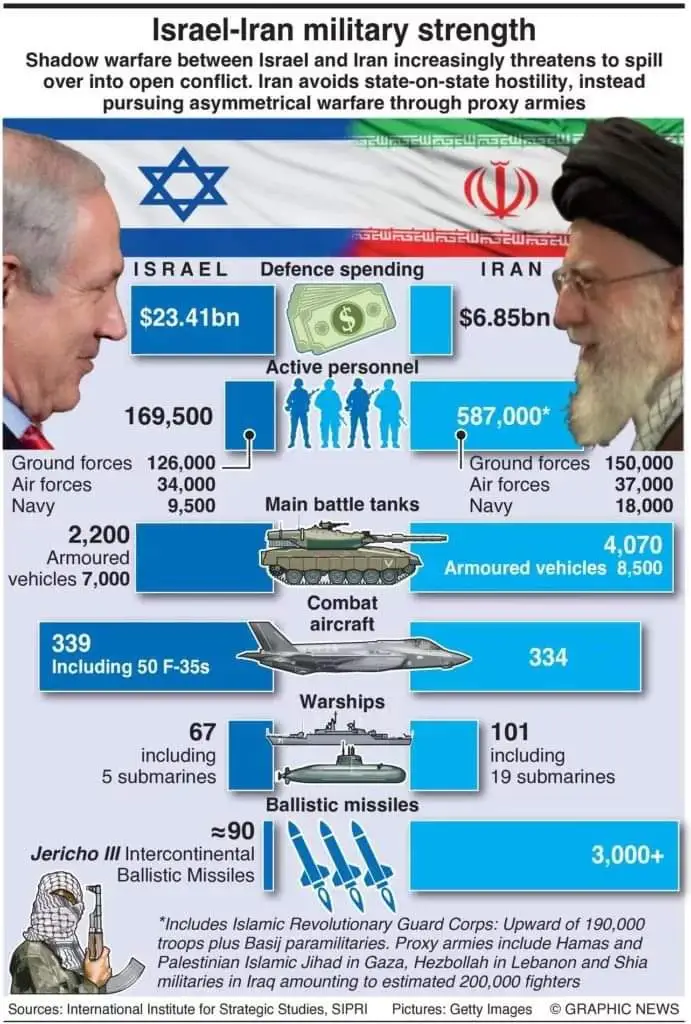Israeli Prime Minister Benjamin Netanyahu and his immediate war cabinet are considering what actions to take following Iran’s attack on Saturday.
Allies, including the United States, have asked Israel not to risk triggering a broader regional conflict, and President Joe Biden has made it clear that American forces would not participate in any retaliatory strikes on Iran.
Here are some of the options Israel may be considering:
Air strikes
Israel could respond to Iranian bombardment with airstrikes of its own, mainly because Iranian air defenses are considered far less developed than the multilayer system Israel and its allies deployed on Saturday night.
An Israeli Air Force official said in a collective interview that the air force was ready to defend Israel and added: “Part of defense is to react and attack if necessary.”
“And that’s up to our government and cabinet to decide how, when and if,” the official said.
Such an attack could target strategic facilities, including Revolutionary Guard bases or nuclear research facilities.
Former intelligence officials say it would be less likely to hit civilian infrastructure, such as power plants, and would need to avoid civilian casualties. That would be as much to ensure there is no more loss of international support as from the assessment that Iranian authorities are vulnerable to popular pressure on political repression and the dire economic situation. Significant civilian casualties would be considered likely to rally Iranian public support in support of the government.
Israel could also target proxy groups like Hezbollah in Lebanon or Iranian targets in countries like Syria and Iraq. However, Iran’s first direct attack on Israel suggests that any such action would be just part of a broader response that would also target Iran itself.
Cyber attack
Israel is believed to have carried out several cyber attacks in Iran over the years, on infrastructure ranging from gas stations to industrial plants and nuclear facilities, and a repetition is considered one of the likely retaliation options.
Any attacks of this kind can interfere in highly visible areas, such as power generation or flight services. As with direct airstrikes, former intelligence officials say they believe Israel would avoid attacks on infrastructure such as hospitals to reduce the impact on the general population.
undercover ops
Israel is believed to have carried out a number of secret operations within Iran, including the assassination of several of its top nuclear scientists.
Such operations could be carried out inside and outside Iran.
Diplomacia
In addition to military and intelligence strikes against Iran, Israel is scaling up diplomatic efforts to isolate Tehran, including extending sanctions. Foreign Minister Israel Katz has also renewed pressure on European countries to join the United States in declaring Iran’s Revolutionary Guard a terrorist organization.
